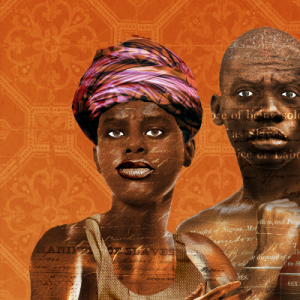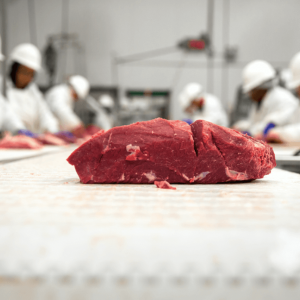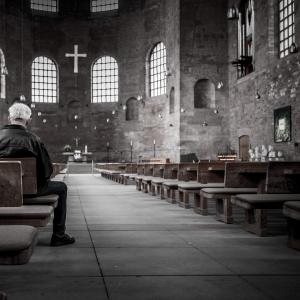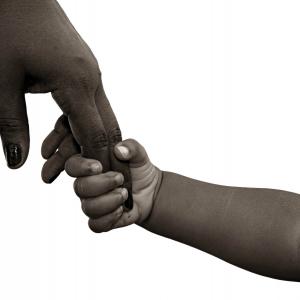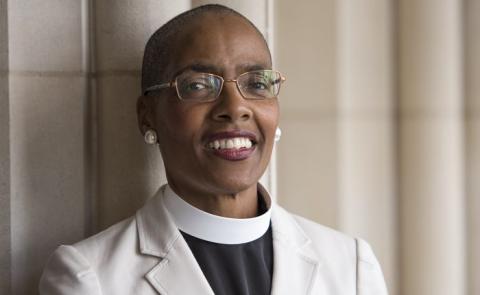
The Rev. Dr. Kelly Brown Douglas is an Episcopal priest and author of Stand Your Ground: Black Bodies and the Justice of God. She is the Dean of the Episcopal Divinity School at Union Theological Seminary and the Bill and Judith Moyers Chair in Theology at Union. She also serves as the Canon Theologian at the Washington National Cathedral and Theologian in Residence at Trinity Church Wall Street. She is a leader in the field of womanist theology, racial reconciliation, and sexuality and the black church.
Posts By This Author
A Christian Call for Reparations
Christian theology has been used to legitimate white supremacist realities. We must tell that truth and push forward.
Christian theology has been used to legitimate white supremacist realities. We must tell that truth and push forward.
Trading Lives for Labor
Yet history repeats itself – leaders are sacrificing lives to ensure an "uninterrupted food supply." These meat and poultry plants, just like cotton fields once were, have been deemed "critical infrastructure" to the nation's economy.
In this Kairos Time, Will We Embody Church?
The church is called to meet Jesus in the streets with the homeless — for in a time when people are called to shelter in place they have no place to go. The church must also meet Jesus in places like Flint, Mich. where poor people who are already suffering from respiratory conditions related to contaminated water are amongst those at highest risk.
How Evangelicals Became White
For much of American evangelical history, spreading the gospel meant spreading whiteness.
WHAT VALUES WERE really at stake for the 81 percent of white evangelicals who voted for a presidential candidate who uses crass language and admits to engaging in coarse behavior, and whose campaign was marked by vitriolic hatred of various people, particularly people of color?
I raised this question with a white male leader of a Christian foundation. In response, he told me to consider the “moral values”—such as pro-life concerns—that he said prompted, if not demanded, white evangelical support of Donald Trump’s candidacy.
The Christian leader suggested that these particular concerns mitigated any misgivings that white evangelicals might have with Trump’s dissolute behaviors and bigoted views. For many others, the moral imperatives not to support Trump were more overriding, especially for those who prioritize personal virtue as a core religious value.
The “value proposition” displayed by white evangelicals in the 2016 election, and the definition of what constitutes “moral values” and what doesn’t, is inextricably related to the nation’s upcoming demographic shift—the fact that, by the year 2044, the United States is expected to become majority nonwhite. This has significant implications for the wider faith community regarding issues of race. Much more may be at stake than the leader of the Christian foundation was able or willing to recognize.
‘The new Israelites’
The value proposition of the Trump campaign was made clear in the campaign’s “Make America Great Again” vision. This mantra tapped into America’s defining Anglo-Saxon myth and revitalized the culture of white supremacy constructed to protect it.
The Anglo-Saxon myth was introduced to this country when America’s Pilgrim and Puritan forebears fled England, intent on carrying forth an Anglo-Saxon legacy they believed was compromised in English church and society with the Norman Conquest in 1066. These early Americans believed themselves descendants of an ancient Anglo-Saxon people, “free from the taint of intermarriages,” who uniquely possessed high moral values and an “instinctive love for freedom.”
The Stories That Matter from a Black Mother to Her Son
It was this fundamental story of black faith that I wanted to sow deep within my son. I realized that if I was to prevent the denigrating pieces of white inhumanity from being “implanted deep within [him],” then he had to know the story of faith that has helped black people “in the teeth of the most terrifying odds, achieve an unassailable and monumental dignity.”
